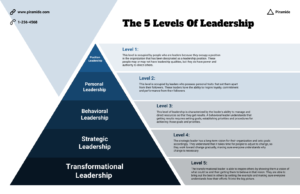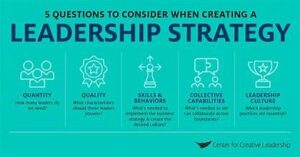
In today’s fast-paced and ever-evolving business environment, effective leadership is more crucial than ever. Unlocking your leadership potential not only enhances personal career growth but also significantly contributes to the success of your organization. This article explores proven strategies and wisdom to help you become a more effective leader, ensuring your management skills are optimized for the modern workplace.
Understanding Leadership Potential
Before delving into strategies, it’s essential to understand what leadership potential entails. Leadership potential refers to the capacity to influence and guide teams toward achieving common goals. It’s about harnessing personal attributes and skills that can inspire, motivate, and drive positive outcomes within an organization.
1. Self-Awareness and Emotional Intelligence
Effective leadership starts with self-awareness. Understanding your strengths, weaknesses, values, and leadership style is crucial. Emotional intelligence (EI) plays a significant role here. Leaders with high EI can manage their own emotions and understand others’ feelings, leading to better interpersonal relationships and decision-making.
- Self-Assessment Tools: Utilize tools like the Myers-Briggs Type Indicator (MBTI) or 360-degree feedback to gain insights into your leadership style.
- Mindfulness Practices: Engage in mindfulness and reflective practices to enhance self-awareness and emotional regulation.
2. Developing Communication Skills
Clear and effective communication is a cornerstone of successful leadership. Leaders must articulate their vision, provide constructive feedback, and foster open dialogue within their teams.
- Active Listening: Practice active listening to fully understand your team’s concerns and ideas. This involves not just hearing but also interpreting and responding empathetically.
- Transparent Communication: Be open and honest about organizational changes, challenges, and expectations. Transparency builds trust and encourages a collaborative environment.
3. Strategic Vision and Planning
A compelling vision and strategic planning are vital for guiding teams toward long-term goals. Leaders should be able to set clear objectives and develop actionable plans to achieve them.
- Goal Setting: Utilize SMART (Specific, Measurable, Achievable, Relevant, Time-bound) goals to create clear and attainable objectives.
- Strategic Frameworks: Implement frameworks like SWOT (Strengths, Weaknesses, Opportunities, Threats) analysis to assess and plan for strategic growth.
4. Empowering and Motivating Teams
Empowering your team involves giving them the autonomy to make decisions and encouraging them to take ownership of their work. Motivation is key to maintaining high performance and engagement.
- Delegation: Delegate tasks effectively by matching responsibilities with team members’ strengths and development goals.
- Recognition and Rewards: Regularly recognize and reward achievements to boost morale and reinforce positive behaviors.
5. Adaptability and Problem-Solving
In a rapidly changing business landscape, adaptability is crucial. Leaders must be able to navigate uncertainties and solve problems effectively.
- Change Management: Develop strategies to manage change smoothly, including clear communication and support systems.
- Problem-Solving Techniques: Apply problem-solving methodologies like the 5 Whys or Root Cause Analysis to address challenges efficiently.
6. Continuous Learning and Development
Leadership is a journey of continuous improvement. Investing in personal and professional development helps leaders stay relevant and effective.
- Professional Development: Attend leadership workshops, seminars, and courses to enhance your skills and knowledge.
- Mentoring and Coaching: Seek out mentors or coaches who can provide guidance and feedback on your leadership journey.
7. Building Strong Relationships
Building strong relationships with team members, peers, and stakeholders fosters a positive work environment and enhances collaboration.
- Networking: Engage with industry peers and participate in professional organizations to build a robust network.
- Team Building: Organize team-building activities to strengthen relationships and improve team cohesion.
Conclusion
Unlocking your leadership potential involves a combination of self-awareness, effective communication, strategic planning, and continuous learning. By implementing these proven strategies and embracing the wisdom of experienced leaders, you can enhance your leadership skills and drive your team and organization toward greater success.

